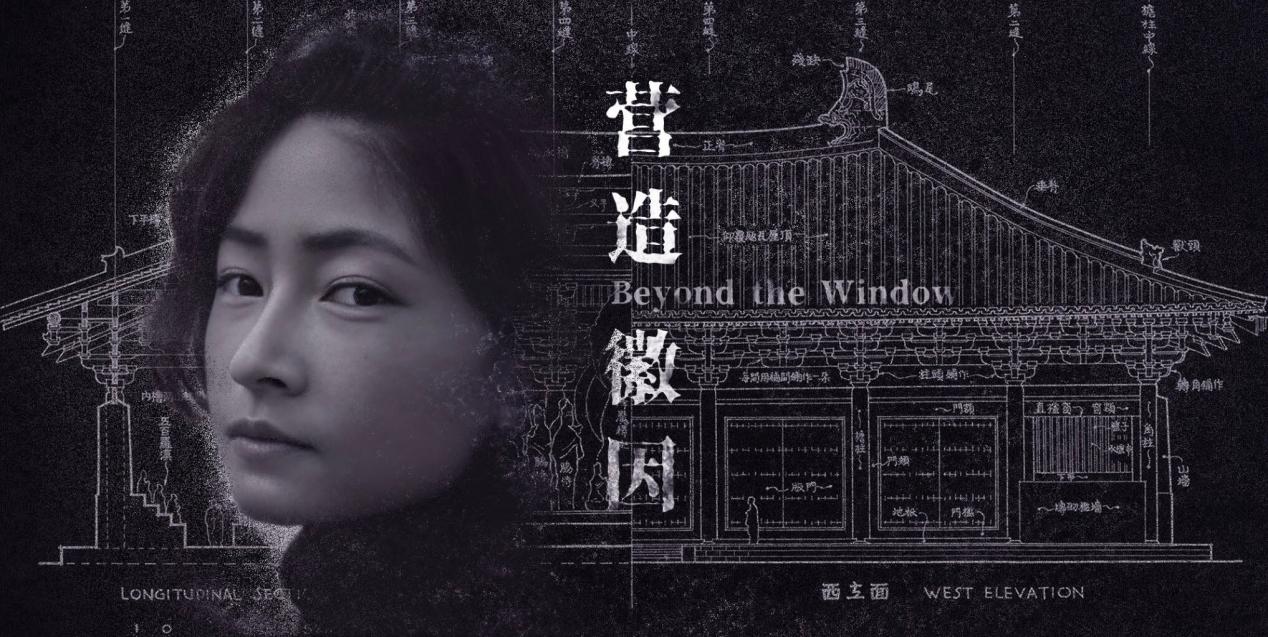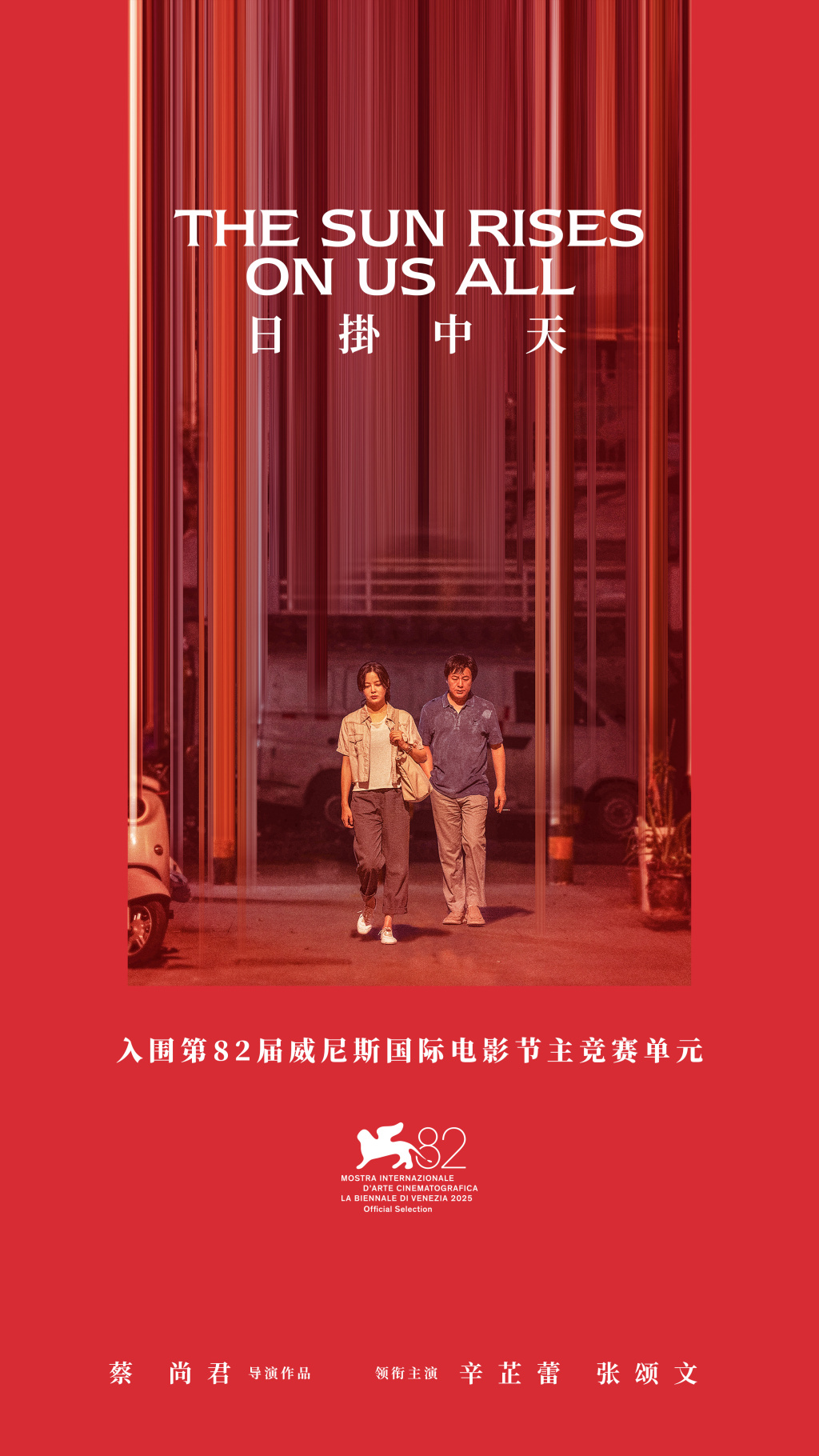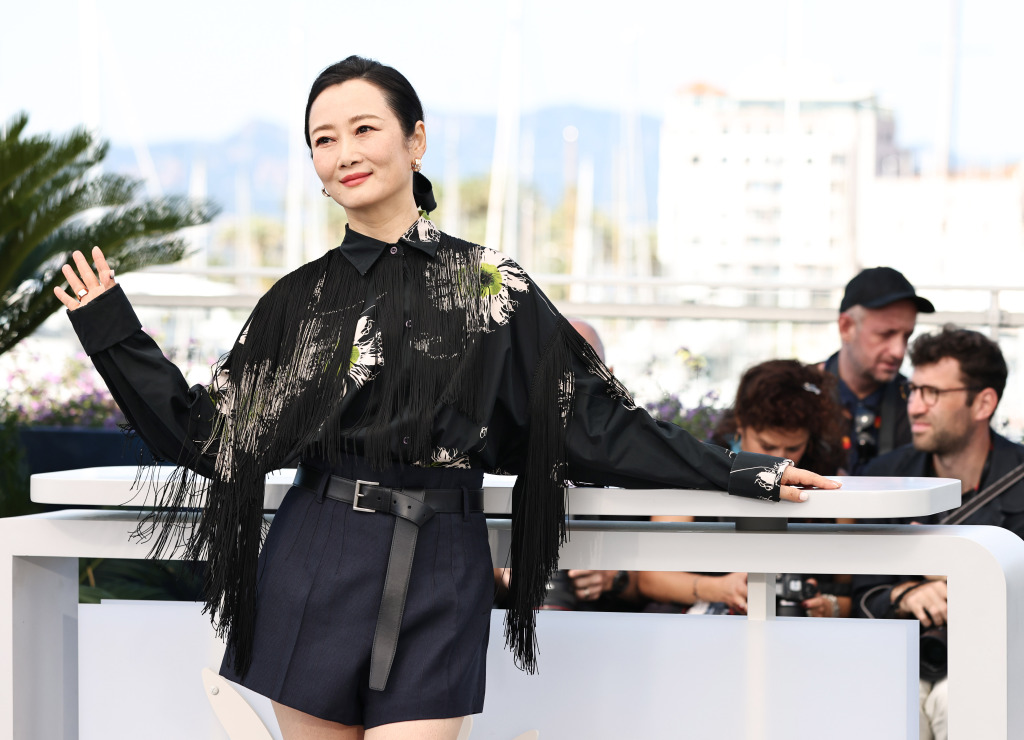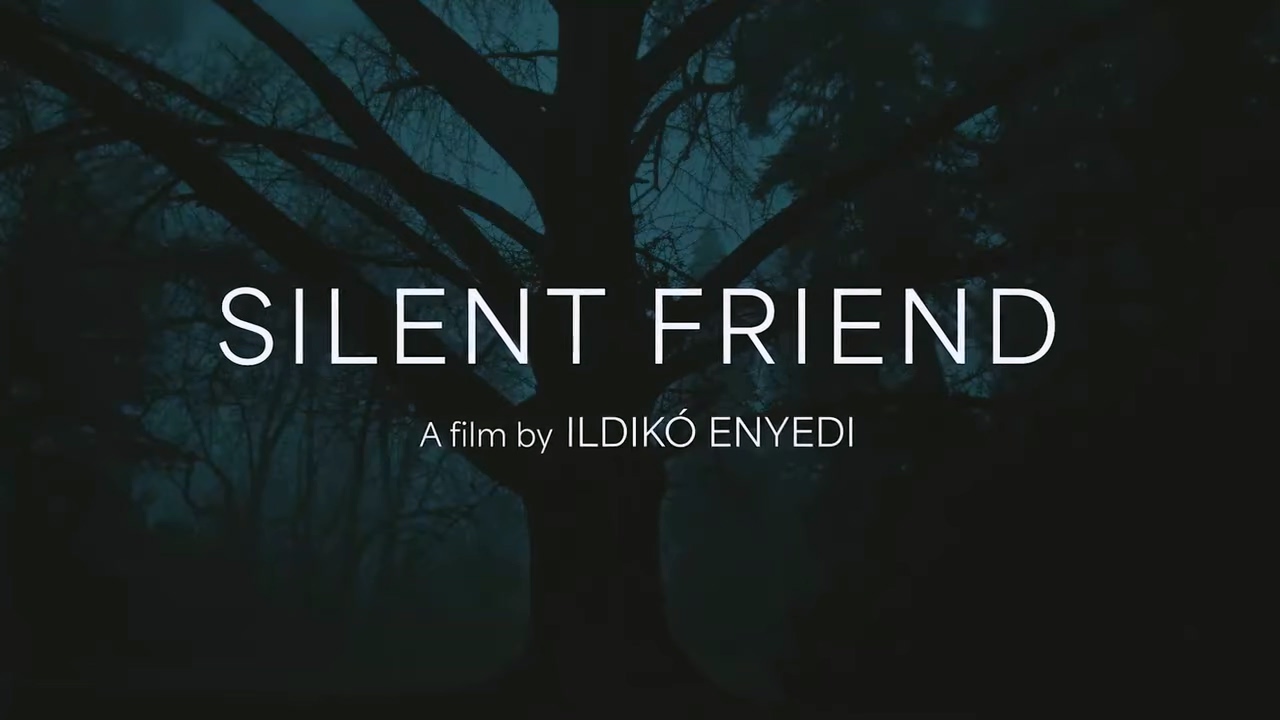
For Chinese audiences, the biggest draw of "Silent Friend" may be its lead actor, Tony Leung Chiu-wai, making his European film debut. However, director Ildikó Inyedi is also a longtime friend of the Chinese film industry. In 2017, she visited Hong Kong for a conversation with Wong Kar-wai; in 2018, she served on the Golden Goblet Award jury at the Shanghai International Film Festival; in 2023, she returned to the festival and gave a masterclass; and this past May, she spoke extensively about her love for Hong Kong cinema at the "Image Asia Chinese Film Screening Week" in Budapest.

The just-concluded Venice Film Festival was packed with excellent films, making it considered a rare "big year" in recent years. We cheered for Xin Zhilei , the first Chinese actress born in the 1980s to win one of Europe's three major awards. We were also fortunate to witness director Jarmusch, now in his seventies, win his first of the three prestigious awards, winning the Golden Lion for his thriller, which had been rejected by Cannes.
Yet, despite the bustle and bustle, everything has now gradually settled into a state of calm. Perhaps this moment is more appropriate to reflect on the biggest missed gem of this year's Venice Film Festival: "Silent Friend," the new film by renowned Hungarian director Ildikó Enyedi.
Three is the smallest magic number
On the eve of the closing ceremony, many media present were betting that "Silent Friend" would be the best film in Venice this year, and Tony Leung Chiu-wai was also expected to continue his lucky star status and achieve the record of winning the Golden Lion Award for the fourth time after "A City of Sadness" (1989), "The Rickshaw Driver" (1995) and "Lust, Caution" (2007).
After all, on the ICS Critics Panel, which is scored by film critics and commonly known as the Venice Film Festival program, this year's finale "Silent Friend" scored the highest score of 3.8 (out of 5 points), surpassing the Golden Lion Award winner "Parents and Brothers" with 3.5 points. This result is even the highest score in the five years since the international film critics association established the Venice Film Festival scoring mechanism in 2021.
In addition, "Silent Friend" received 100% positive reviews from 12 film reviews collected by Rotten Tomatoes. However, in the end, "Silent Friend" only won one Best Newcomer Award (Luna Wedler), which is why it is said to be a missed gem.
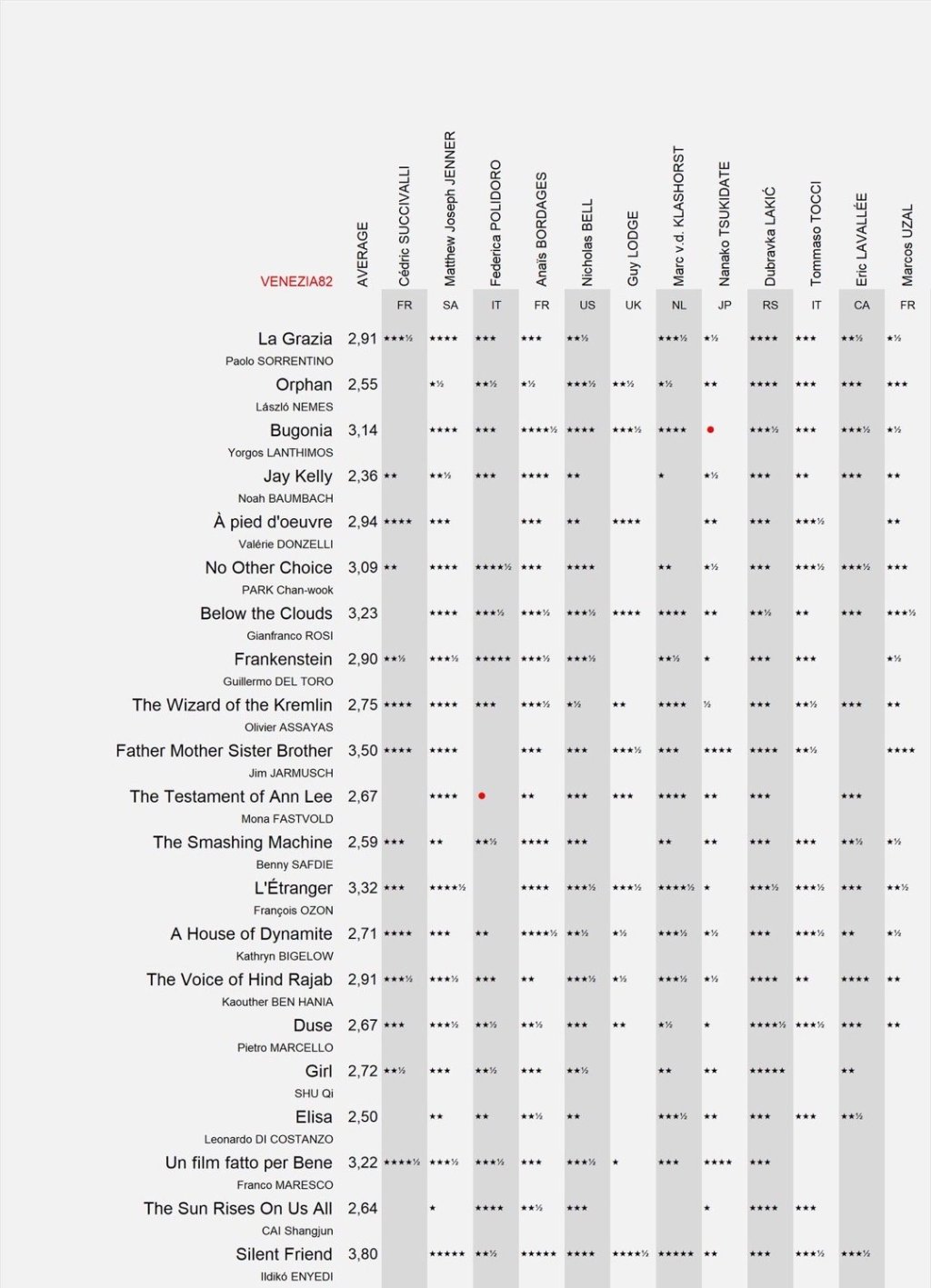
The finale of the show, "Silent Friends," received the highest score of 3.8 in the Venice program book.

Ildiko Inyedi (fifth from left) and the main creators attended the world premiere of "Silent Friends" at the Venice Film Festival.
Ildikó Inyéti first broke out in her acting career with the black-and-white film My Twentieth Century, which won the Cannes Camera d'Or. However, before winning the Golden Bear at the Berlin Film Festival in 2017 with Flesh and Soul, she experienced an 18-year hiatus. During this time, she taught at the Academy of Theatre and Film Arts in Budapest, nurturing a new generation of Hungarian filmmakers, including Balint Tsemühler (The Schoolwork). Silent Friend is her third film since her comeback, following The Words of My Wife, which was selected for the 2021 Cannes Film Festival.

"Silent Friends" is Inyedi's second collaboration with French actress Léa Seydoux (right) after "My Wife's Words".
The film, based on a ginkgo tree at the University of Marburg in Germany, connects three stories set in 1908, 1972, and 2020. The protagonists are the university's first female student, a young man entrusted with plant care by a female classmate he secretly loves, and a Hong Kong neuroscientist stranded there due to the pandemic. The so-called "silent friend" refers to the ginkgo tree, which has witnessed different stories unfold in the same space over the past century. Notably, each story was filmed using different media: 35mm black-and-white film in 1908, 16mm color film in 1972, and color digital imaging in 2020.

German actress Luna Wedler, who starred in the first story, won the Best Newcomer Award at the Venice Film Festival.
While the film could easily be interpreted as a political statement about environmentalism or a microcosm of feminist progress, director Inyeti has repeatedly denied such grand themes in interviews and press conferences. Speaking to the film and radio program FRED, she explicitly stated that she doesn't intend to impart any ideas to the audience, but rather hopes they will find their own answers.
"Expressing my stance by remaining silent is exactly what I want to do. Many changes in life can be achieved simply by shifting perspective," Yinyedi said in an interview with Variety. "Demanding kindness in a radical way won't work, but I've always been skeptical of only showcasing darkness. It's true that darkness is everywhere, but that's not the only truth. Every day, I'm struck by unexpected kindness, which often appears at the most unexpected moments and places."

Tony Leung Chiu-wai and his "silent friend"
However, Inyedi does not deny the metaphorical nature of the film. In an interview with Cineuropa, she said, "Arthur Koestler has a remarkable book called The Sleepwalkers, which tells the history of European cosmological thought, from ancient Egypt to Einstein. Although it explores the most hardcore science, its entry point is new metaphors. Even if the metaphors we use to describe the world are not as vivid as 'a giant elephant carrying the earth', they still provide us with a language to establish a mode of thinking. And this metaphorical mode of thinking will determine how we move in the world and how we perceive in our daily lives for a certain period of time, until it is replaced by a new metaphor. In many ways, we are still stuck in the 19th century."

Chinese version of Arthur Koestler's The Sleepwalkers
As for why three different timelines were chosen, Inyedi said, "Each point in time has its own special significance. I also believe that 'three' is the smallest magic number, the smallest number that allows people to perceive a system. Even so, three can be replaced by five, seven, or other numbers. However, for the film, three timelines are enough to allow us to present a sufficient number of moments in the narrative, each moment is different and feels completely different. Moreover, on each timeline, people's pace of action is different, and their way of perceiving the world is also different. In the same garden, the same world, the characters in different timelines focus on completely different things. So, in a sense, choosing three timelines also reflects the fact that these important encounters and discoveries are actually serendipitous."
We can only capture a small part of nature
The 1908 timeline, presented in 35mm black-and-white footage, features Karl Blossfeldt, a German master photographer specializing in close-up portraits of plants. "You can see the presence of the creator—whether it's God or nature, both appear in full bloom. You feel like you're on an unknown planet, gazing at alien life," Ildiko Inyeti said in an interview with Variety. The film's final two stories draw more heavily on her own life experiences.

Works by German photography master Karl Blossfeld
"What I want to show is how easily people's perspectives can change. The biggest turning point in the 20th century was in the late 1960s and early 1970s, a period when existing cognition was truly questioned. For me personally, as a girl from the Eastern Bloc, I was given special permission to study at a Swiss university. At that time, I was one of that group of young people, just like the characters in the 1972 line in the film, who really believed that they could rethink and change the way humans live and get along with nature. The biggest difference compared to the 1908 line is that before the First World War, people generally felt that everything would continue forever." Inyedi said in an interview with Cineuropa.
In the third timeline, the pandemic has clearly transformed the world, but the impact on individuals is far more subtle than it appears. "I live on the fourth floor of a building in the heart of Budapest, and there's a huge cherry tree outside my window. During the lockdown, watching it gradually transform, I developed a very personal connection with it. It was an amazing experience. Director Apichatpong had the same experience, except he was even luckier—he had an entire garden."

Tony Leung Chiu-wai in the film
In this story, Professor Tony (Tony Leung Chiu-wai) is trapped in an empty university. His only solace is to discuss the world through video calls with a colleague (Léa Seydoux). He attempts to use scientific methods to detect the signals released by plants.


Filming site of the plant sensing experiment
Regarding the plant-sensing experiments in the film, Inyedi revealed in an interview with Variety that the inspiration came from CIA polygraph expert Cleve Backster's 1970s experiment of attaching a polygraph to plants to prove that plants have emotions. "Humans have a strong desire to understand others—whether it's plants, animals, or other humans. It's a desire deeply rooted in us. However, I also value a sense of humor and don't take myself too seriously."

Although he wasn't able to travel to Venice with the crew, Tony Leung Chiu-wai spoke via video link at the press conference for "Silent Friend" about how he got into character and how the work changed him. "I developed this character through materials sent by Ildiko, including four professional books, some plant footage, early research on plant minds—about how we should share this planet with other living things—and a book on philosophy. After reading all this material, I began to see the world differently. I found I had a different perspective on it. It's amazing. You know, I run in the mountains every day. After studying those books, I saw the trees there completely differently. I felt like they had souls, or as people often say, Umwelt (the environment constructed by individuals through sensory signals). And then, I suddenly realized that all things are equal."
This coincides with what Inyedi revealed in the interview: "I had a very interesting conversation with Tony Leung Chiu-wai, and he was very interested in the philosophical connotations contained in the film. We exchanged books and TED talks, and he told me that Eastern philosophy talks about the unity of man and nature. Humans have an innate curiosity, which is to understand how to integrate with the world while maintaining independence." "It's not just about repeating 'we are part of nature' over and over again, but to truly accept our separation from nature. Our perception is very limited, and we can only capture a small part of nature. If we can accept this calmly, perhaps we will live differently."
